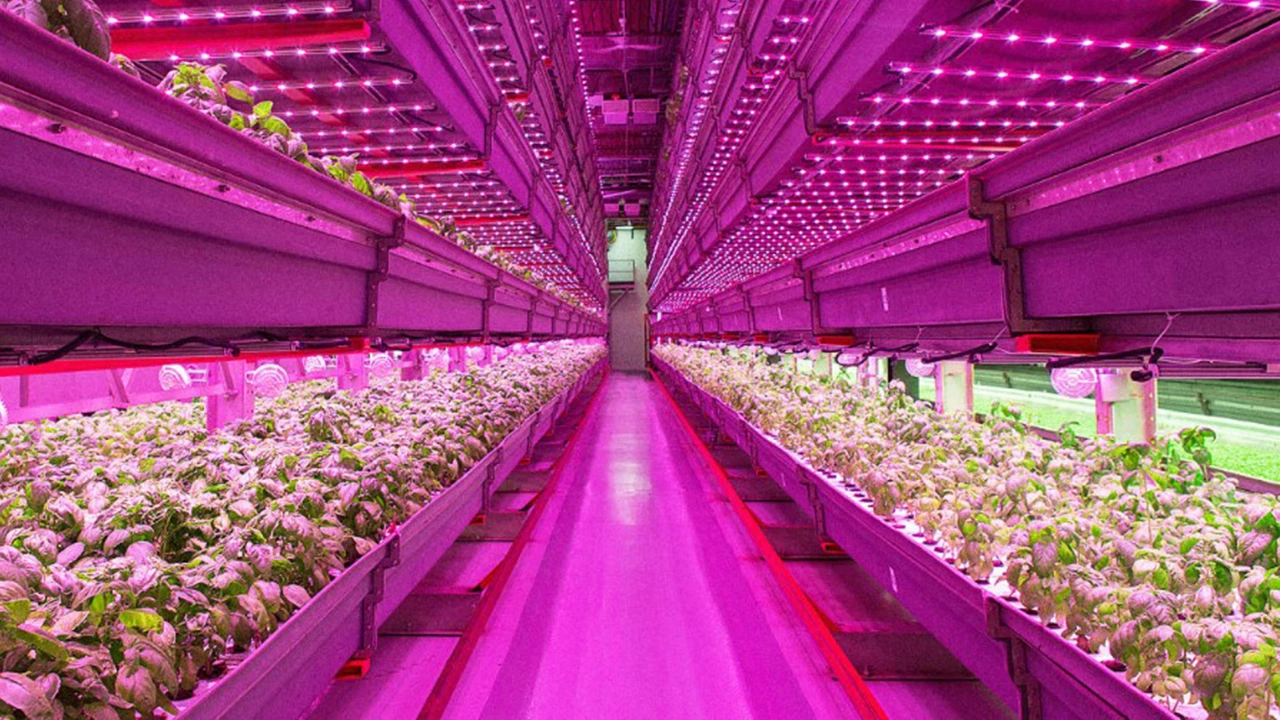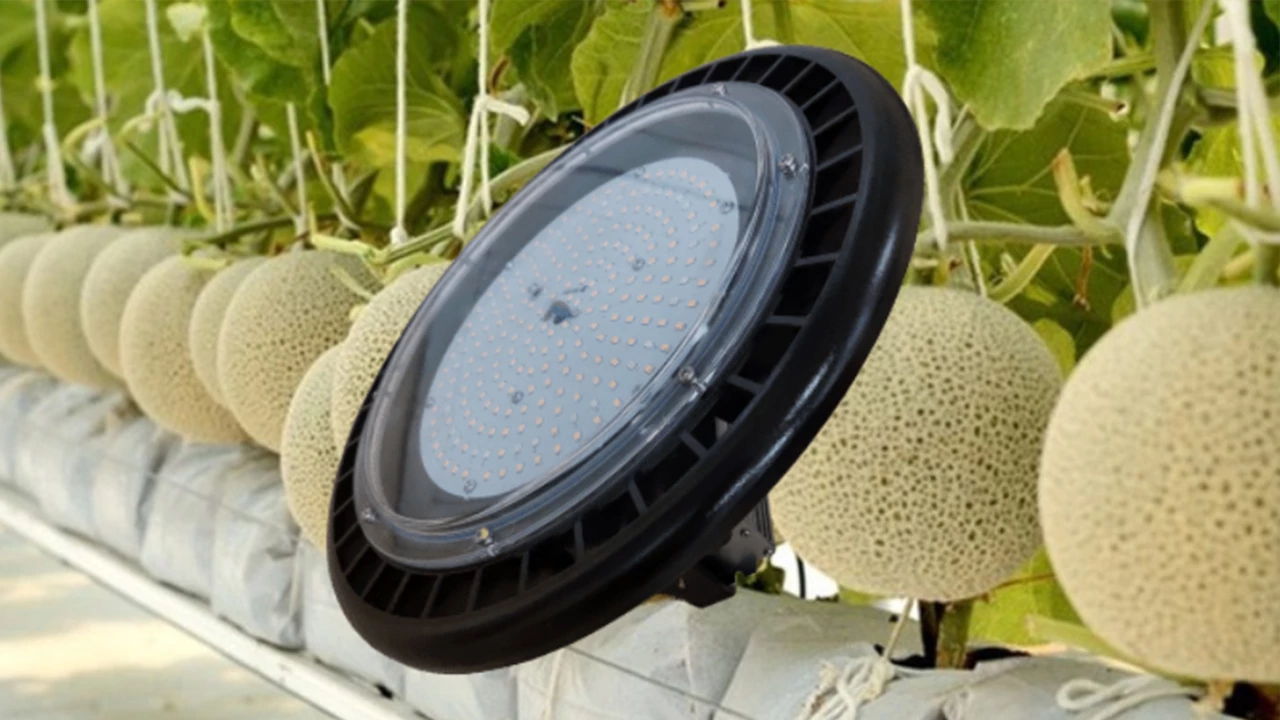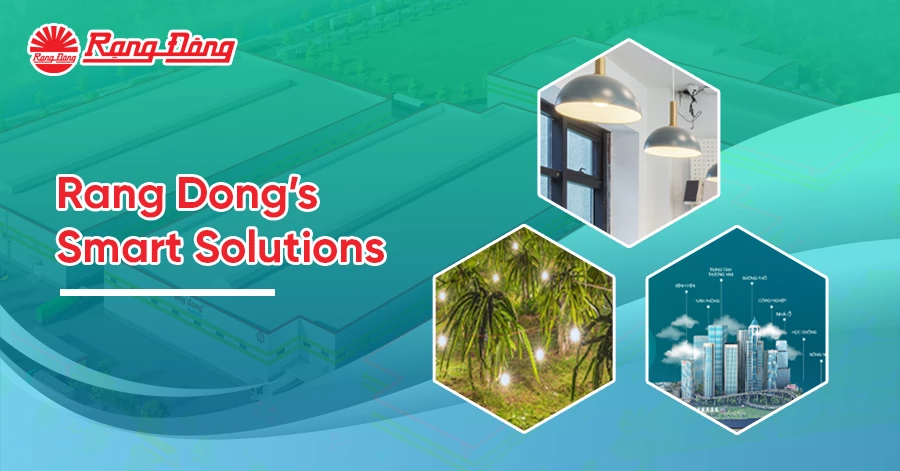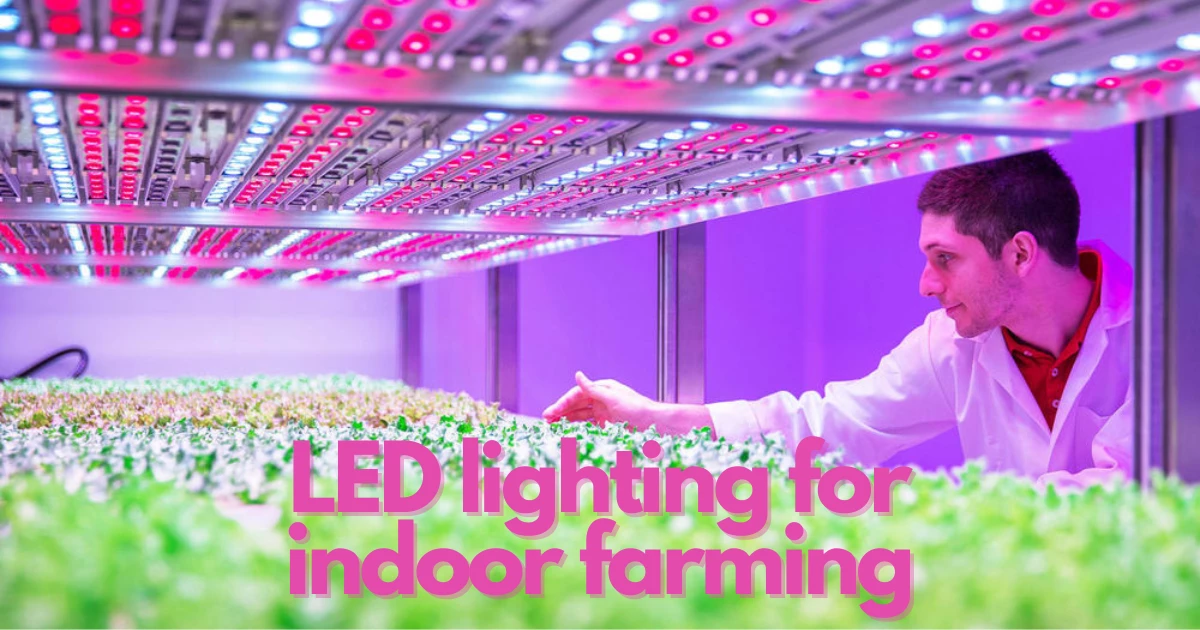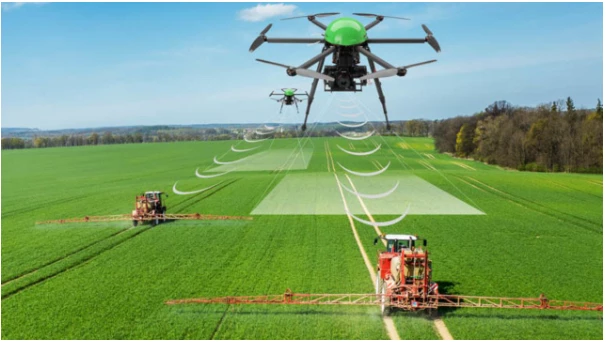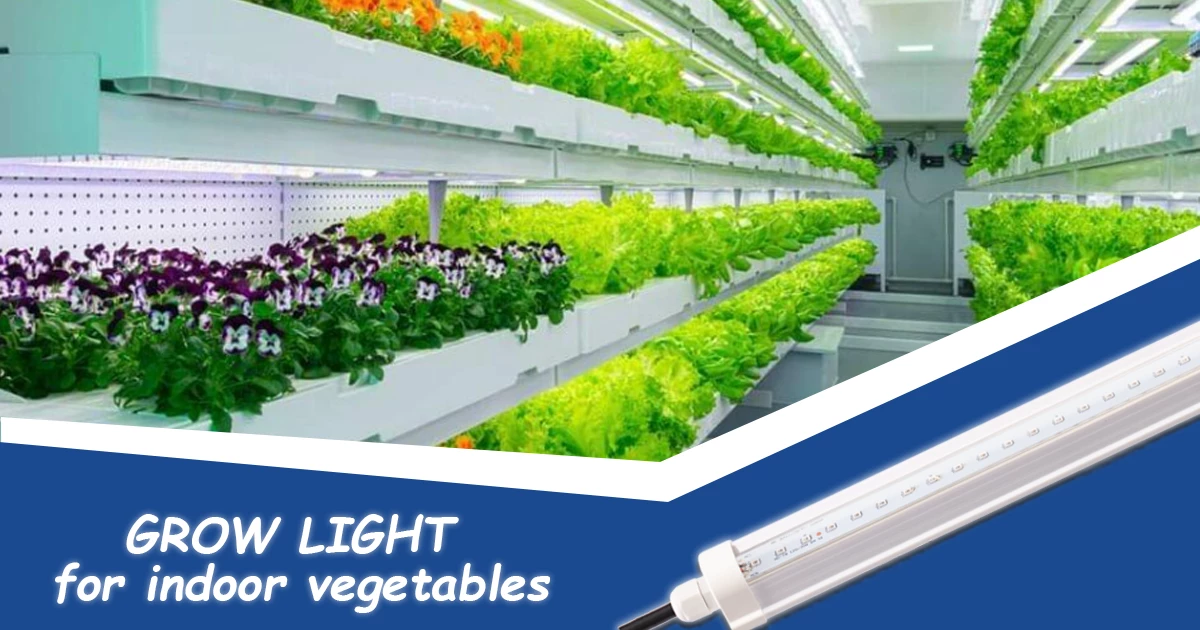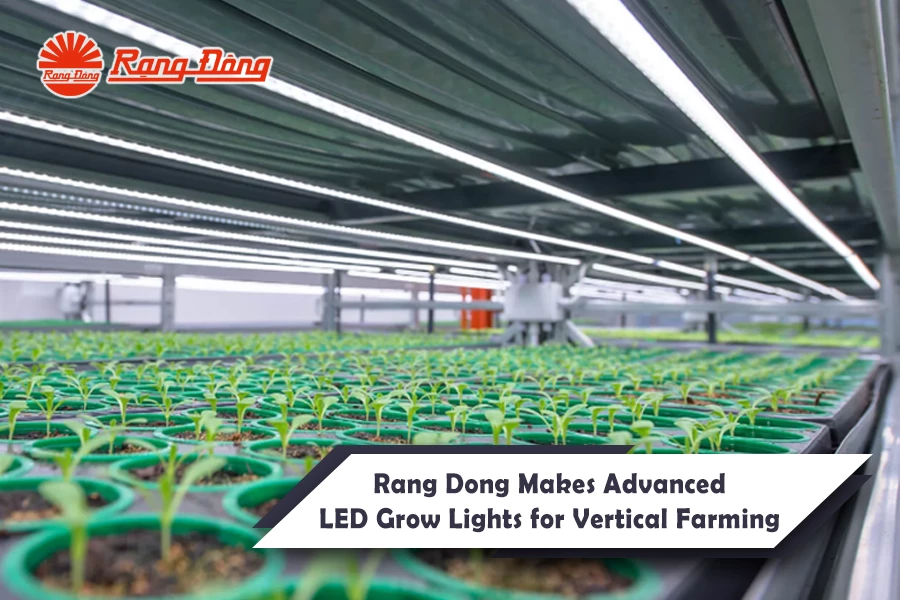
Vertical Farming with LED Lights Boost Yields, Save Costs
Vertical farming represents a revolutionary approach to agriculture, offering a sustainable solution to food production in urban environments. At the heart of this innovation lies Light Emitting Diode (LED) technology, which plays a crucial role in providing the optimal conditions for plant growth in indoor vertical farms. We're going to explore the benefits of vertical farming with LED lights in the article below.
Vertical farming is a method of cultivating crops in vertically stacked layers, often in controlled indoor environments such as warehouses or shipping containers.
By utilizing vertical space efficiently, the approach maximizes crop yields while minimizing land use and environmental impact. Vertical farms can be found in urban areas worldwide, where access to arable land is limited, while demand for locally grown produce rises.
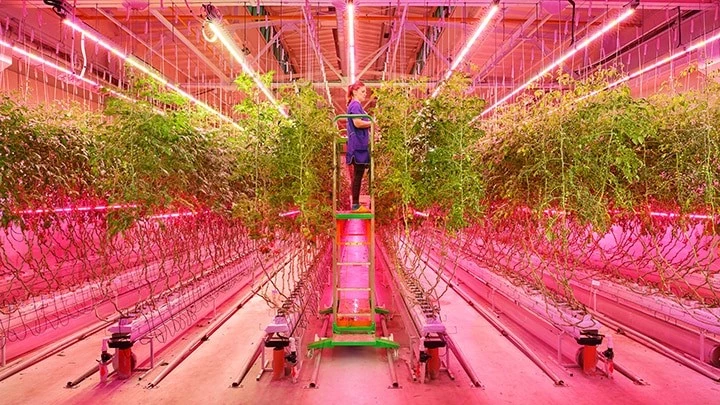
A worker checks the plants in a modern vertical farming with LED lights.
LED Lights' Role
LED lights have emerged as the preferred lighting technology for vertical farming thanks to their energy efficiency, customizable spectrum, and low heat output.
In vertical farming systems, LED lights serve as artificial light sources to supplement or replace natural sunlight, providing plants with the necessary light energy for photosynthesis and growth.
Benefits
Energy Efficiency: LED lights consume significantly less energy compared to traditional lighting sources such as fluorescent or incandescent bulbs. This energy efficiency translates to lower operating costs for vertical farms, making them economically viable and sustainable in the long run.
Customizable Spectrum: LED lights allow growers to tailor the light spectrum to meet the specific needs of different plant varieties and growth stages. By adjusting the ratio of red, blue, and white light, growers can optimize photosynthesis, flowering, and fruiting processes, leading to higher yields and improved crop quality.
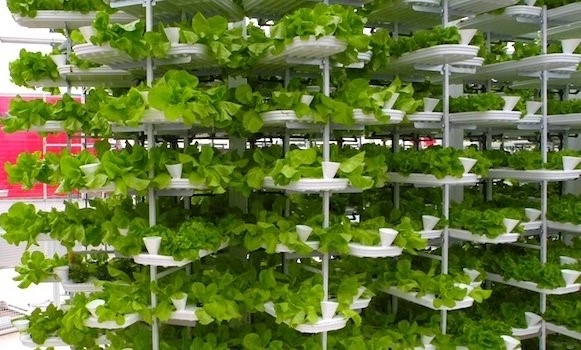
Lettuces are now often planted in hydroponic vertical farms.
Minimal Heat Emission: Unlike traditional lighting technologies that emit substantial amounts of heat, LED lights produce minimal heat, reducing the risk of heat stress and damage to plants.
This characteristic is particularly beneficial in indoor environments where temperature control is crucial for plant health and productivity.
Longevity and Durability: LED lights have a longer lifespan and greater durability compared to conventional bulbs, making them well-suited for continuous operation in vertical farming systems. With proper maintenance, LED lights can last for tens of thousands of hours, minimizing the need for frequent replacements and downtime.
Advancements in Vertical Farming with LED Lights
Smart Lighting Systems: The integration of smart technology into LED lighting systems is transforming the way vertical farms are managed and monitored. Smart lighting systems can adjust light intensity, spectrum, and duration based on real-time data such as plant growth rates, environmental conditions, and energy consumption, optimizing resource utilization and maximizing crop yields.
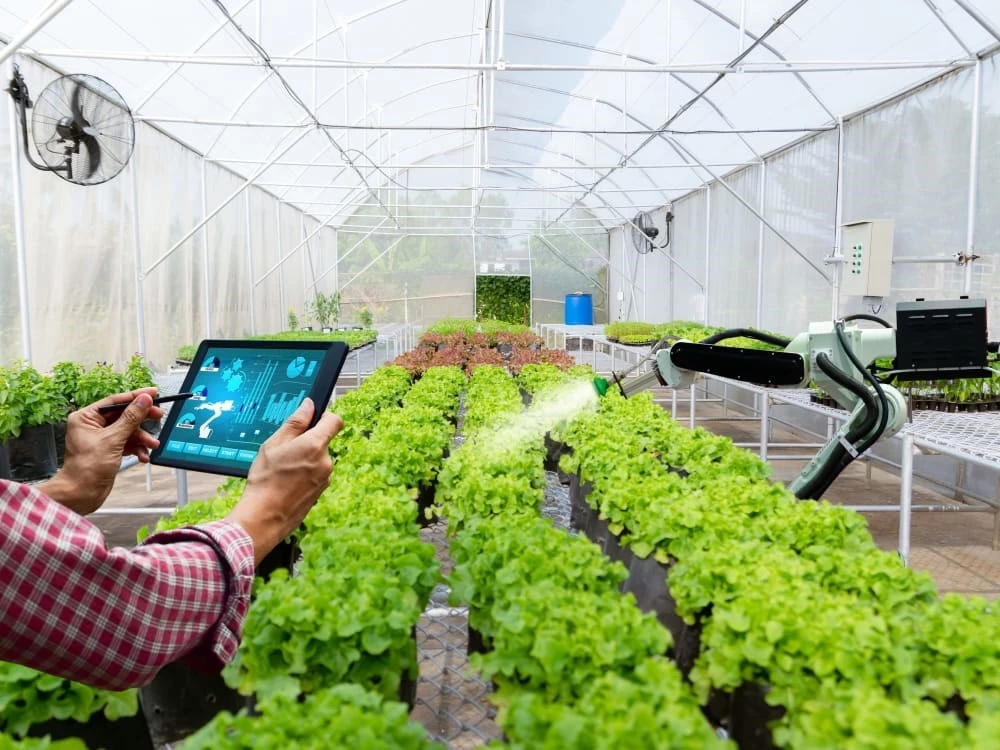
Robot and smart control will replace human in modern farms.
Vertical Farming Specific Designs: LED lighting manufacturers are developing specialized lighting fixtures tailored to the unique requirements of vertical farming environments. These fixtures are designed to distribute light evenly across multiple growing tiers, ensuring uniform growth and consistent yields throughout the vertical farm.
Efficiency Improvements: Ongoing research and development efforts are focused on enhancing the efficiency and performance of LED lights for vertical farming applications. Innovations such as advanced optics, heat management systems, and improved light output are driving further improvements in energy savings, crop quality, and overall productivity.
Vertical farming with LED lights represents a key enabler of sustainable agriculture in the 21st century, offering efficient, customizable, and environmentally friendly lighting solutions for indoor crop cultivation.
As technology further advances and awareness of the benefits of vertical farming grows, LED lighting will play an increasingly vital role in feeding the world's ever-expanding population while minimizing the ecological footprint of food production.
Should you have any questions or request a quotation of Rang Dong products, please send us an email to: export@rangdong.com.vn.
Websites: en.rangdong.com.vn and vacuumflask.rangdong.com.vn



